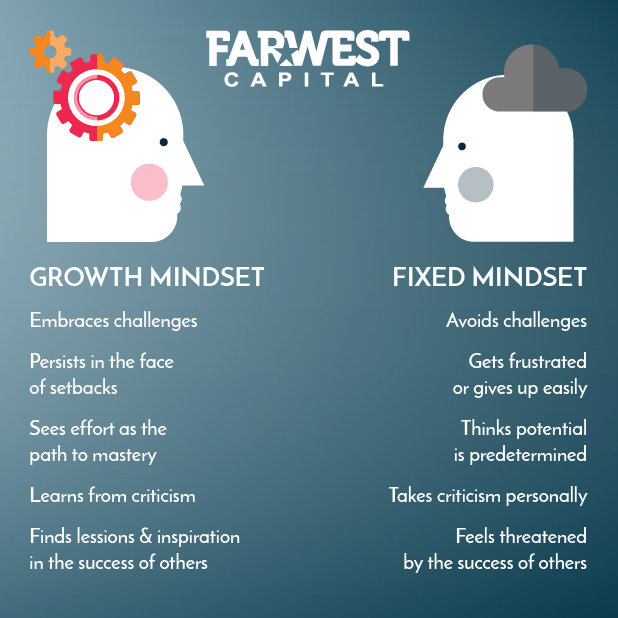Oh, emotions. Messy, aren’t they?
Luckily, I work in finance. I don’t need ‘em. Give me a spreadsheet and a FICO score and we’re good. Boom.
Except that isn’t how it works, at all.
You see, entrepreneurship is quite literally in my DNA. My grandfathers both owned businesses. My father – Xerox’s top salesman in the 70s – left to start his own business: first a car dealership, then a skate rink. When he realized I had the family itch, he sat me down and said something I’ll never, ever forget.
When you sit down with someone, you have to imagine that on their forehead in bold letters is stamped ‘SO WHAT?’
My father was trying to make me understand that I wasn’t just selling myself, or my ideas, or my product. I was taking someone’s time, their most important resource. And not just that – what I was selling often affected them personally. They give a shit – but why? That’s what I needed to know, or find out.

Another way to describe this: Emotional intelligence. Or emotional IQ – EQ. Or, if you’re me: the most valuable skill I have, in career and life.
Step 1: You.
Know thyself, but stay flexible.
Self-awareness doesn’t come easily. Adam Smith, he of the classic economics text “Wealth of Nations” nailed it, back in the 18th century:
The first thing you have to know is yourself. A man who knows himself can step outside himself and watch his own reactions like an observer.
Adam Smith died in 1790 – before he knew that his words would be read by first-year economic students the world over. You might be surprised that an economics nerd would be so… emotional, but not if you read his other book, The Theory of Moral Sentiments:
What can be a greater happiness than to be beloved, and to know that we deserve to be beloved? / What can be a greater misery than to be hated, and to know that we deserve to be hated?
That’s terrifying. Denial ain’t just a river in Egypt, goes the ole’ joke…most of us have massive blind spots, blind spots that only become apparent as we screw things up. The key here: you gotta be proactive. Ask yourself these questions:
- Is my current emotional state useful? Do I want to cultivate it? What actions are resulting from this emotional state, and do I want to be making those actions?
- Are my actions skillful or unskilled? Am I being intentional about those actions?
- Am I constantly being distracted? In my last conversation, meeting, or phone call, was I paying full attention?
- When unexpected things happen, how do I respond? How quickly can I adapt?
(Save this to your podcasts to learn more about mindfulness + emotional intelligence.)
If you’re not answering “yes” to the above questions, here’s the great thing: You can change! Don’t believe people who say you can’t, or that it’s too late. I didn’t start my current routine until just this last decade.
Plus, these days especially, adaptability has never been more valuable for your career. Wall Street veteran James Runde summed it up well:
As you move up the corporate ladder, you will also need to adapt to different roles and responsibilities. What made you a great processor will not make you a great producer. So in order to be successful you will need to be self-aware, flexible, and open to new ideas, projects, and people. This will help you grow your expertise and connections, and you’ll be more prepared for future responsibilities, such as bringing in new business.
About 9 years ago – right when I started Far West Capital – I started establishing a morning routine that ends in 17 minutes of meditation. My own little seance, if you will. It’s how I get back in touch with my emotions and settle my brain, and I gotta say, more of y’all should try it. Here’s my routine.
Step 2: Your team.
Can you collaborate? Are you collegial?
As much as we like to think of finance as a linear, analytical, left-brained world, that’s only some of the picture. At Far West Capital, we like to think that we set ourselves apart by focusing on relationships as much as the numbers. In order to do that, we need to be seriously plugged into our own EQ. We focus on a growth mindset—so we can handle whatever comes our way.

I’ve talked before about how we hire our team – obviously, emotional intelligence is way up at the top of our requirements. One of the questions we keep in mind while hiring: Is this the person who gets the call when there’s a family crisis, you know, the one who fixes shit? Is this someone who can fix big problems, but who has a way of doing it gently, so everyone leaves happy? Those are the kind of folks we want.
Step 3: Clients.
How do you bring empathy to your customer relationships?
Back to that blinking “SO WHAT?!” sign.
I know it sounds cliched, but for me, developing my emotional IQ has been a journey, one that began the day my dad sat me down and told me what was what. I started with just a desire to be more empathetic, caring, and self aware. I’ve also gotten into meditation, which is a practice I’ve been cultivating since I was 18. But if meditation isn’t your thing, there’s something that makes sense for your own practice, something that involves discipline – like yoga, meditation, or martial arts. It only must center you, keep you focused, and encourage that regular self inventory – and you’ll be surprised by how much easier that gets with your own practice.
As much as I’m able, I remind myself to bask in the glory of being an imperfect human being with lots of things to fix. I try to remember that having tough life experiences and adversity is a beautiful thing, and I’ve had my share. It never seems like it in the moment, but these are the things that make us. Tough times don’t test your character, they reveal it. Sometimes, it takes a lot of work to see my doubts and fears for what they are and practice channeling that energy into something positive. When I do, things always go in a better direction.
In short, I’m no emotional intelligence expert. Sometimes I’d rate my EQ as high, other times, not so much. But I’m up for the journey. How about you?
Cole Harmonson is the CEO of Far West Capital, a company that funds the goals of high-growth entrepreneurs. Know a great company in need of capital to unleash their potential? Send them here and we’ll give them a call.

